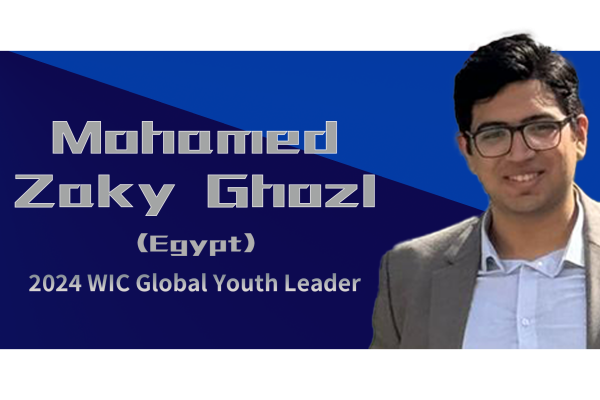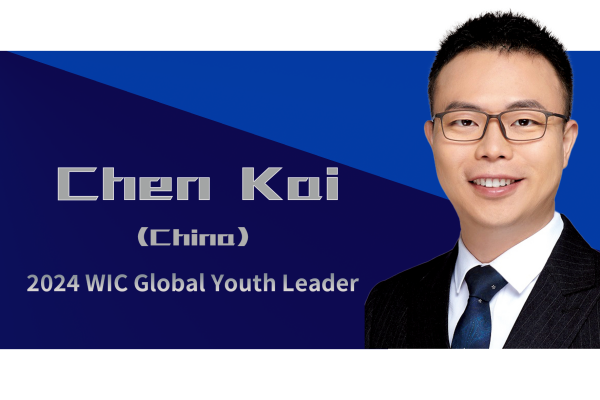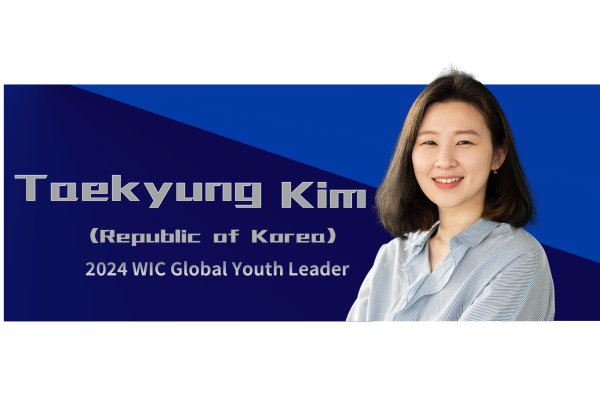
- Home
- Media Center
-
Events
- Wuzhen Summit
- Regional Forums
- Practice Cases of Jointly Building a Community with a Shared Future in Cyberspace
- World Internet Conference Awards for Pioneering Science and Technology
- The Light of Internet Expo
- Straight to Wuzhen Competition
- Global Youth Leadership Program
- WIC Distinguished Contribution Award
- Membership
- Research & Cooperation
- Digital Academy
-
Reports
- Collection of cases on Jointly Building a Community with a Shared Future in Cyberspace
- Collection of Shortlisted Achievements of World Internet Conference Awards for Pioneering Science and Technology
- Reports on Artificial Intelligence
- Reports on Cross—Border E—Commerce
- Reports on Data
- Outcomes of Think Tank Cooperation Program
- Series on Sovereignty in Cyberspace Theory and Practice
- Other Achievements
- About WIC
- 中文 | EN

Let's meet the 2024 WIC Global Youth Leaders!

Mohamed Zaky Ghozl [Photo provided to wicinternet.org]
Mohamed Zaky Ghozl, the visionary founder and managing director of Nature Eye Labs, a youth-driven endeavor pioneering AI-powered solutions to confront environmental crises and bolster sustainability, harnesses groundbreaking technology to translate policies and proposals into tangible outcomes, thereby advancing the United Nations' Sustainable Development Goals (SDGs) in crucial domains like climate action and digital transformation. Driven by a profound passion to empower youth to harness technology for societal benefit, Ghozl, in collaboration with his team, orchestrates capacity-building programs that empower young leaders with the proficiency to catalyze positive change through innovative technological interventions. His dedication to digital sustainability has garnered recognition, and he has been a prominent participant in esteemed initiatives such as the ITU's Generation Connect Young Leadership Program. As a mechanical engineer, educated at Ain Shams University, and an SDG Ambassador for the Egyptian Ministry of Planning and Economic Development, Ghozl seamlessly intertwines his technical prowess with a steadfast commitment to societal impact. His extensive portfolio encompasses renewable energy projects to policy-oriented technological solutions, solidifying his position as a staunch advocate for leveraging technology to forge a sustainable and equitable future.

Chen Kai [Photo provided to wicinternet.org]
Doctor Kai Chen serves as a full professor at the Institute of Information Engineering, Chinese Academy of Sciences.
His research has been deeply rooted in the domains of software testing and artificial intelligence safety. With a focus on the forefront of technological innovation and practical application requirements, Chen is committed to protecting user privacy in the age of global network connectivity and AI proliferation. His contributions encompass the creation of an efficient technique for precisely identifying unknown malicious programs within a vast array of software applications, alongside addressing safety and privacy issues related to AI models. He has garnered several distinguished awards, such as the Chinese Academy of Sciences Young Scientist Award, the CCF-IEEE CS Young Computer Scientist Award, and the Beijing Science and Technology Award - Outstanding Youth ZhongGuanCun Award. Chen has published over 150 scholarly papers in leading international journals and conferences, with many of his research outcomes being adopted and applied by industry leaders.
Beyond academia, he is also dedicated to societal contributions, including the promotion of science education in primary and secondary schools.

Taekyung Kim [Photo provided to wicinternet.org]
Taekyung Kim is currently engaged in a doctoral program at the Korea Advanced Institute of Science and Technology (KAIST), where she specializes in digital literacy within the context of aging societies. Her research pursuits encompass the promotion of digital literacy, as well as the ramifications of ageism in an increasingly elderly world. Prior to embarking on her doctoral journey, she amassed substantial experience at a reputable public research institute, where she delved into policy research and acted as a national delegate support for the OECD Committee for Science and Technology Policy.

The World Internet Conference (WIC) was established as an international organization on July 12, 2022, headquartered in Beijing, China. It was jointly initiated by Global System for Mobile Communication Association (GSMA), National Computer Network Emergency Response Technical Team/Coordination Center of China (CNCERT), China Internet Network Information Center (CNNIC), Alibaba Group, Tencent, and Zhijiang Lab.





